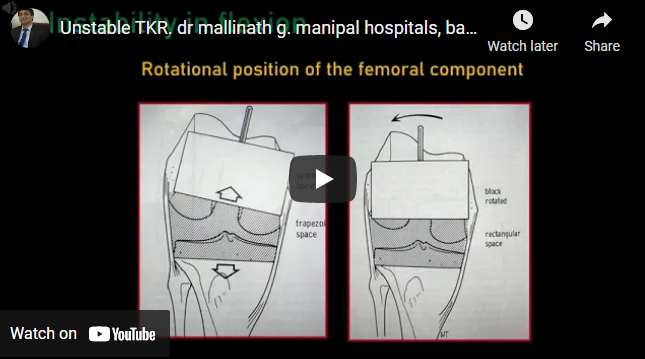- Common causes of failure of TKR include infection ,aseptic loosening & instability
- Instability accounts for 10% to 22% of revision procedures, which is further classified based
- On time, plane and position of knee
- Stability of TKR depends on good bony cuts and soft tissue balancing in all planes
- Check for extension and flexion gaps and assess for instability intra-op before the final
implantation. - Pain is most common presenting complain in unstable knee
- Damage to collateral ligaments, valgus/varus tibial/femoral cuts, over resection of posterior
femoral condyles, inappropriate rotation of femoral/tibial components are known causes for
instability - Knee in hyper extension is bound to fail
- Constrained implants help in managing instability

